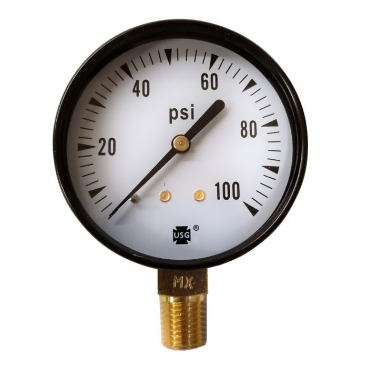Skip to main content Contents Prev Up Next \(\require{cancel}\require{mhchem}\let\vecarrow\vec
\renewcommand{\vec}{\mathbf}
\newcommand{\ihat}{\vec{i}}
\newcommand{\jhat}{\vec{j}}
\newcommand{\khat}{\vec{k}}
\DeclareMathOperator{\proj}{proj}
\newcommand{\kg}[1]{#1~\mathrm{kg} }
\newcommand{\lbm}[1]{#1~\mathrm{lbm} }
\newcommand{\slug}[1]{#1~\mathrm{slug}}
\newcommand{\m}[1]{#1~\mathrm{m}}
\newcommand{\km}[1]{#1~\mathrm{km}}
\newcommand{\cm}[1]{#1~\mathrm{cm}}
\newcommand{\mm}[1]{#1~\mathrm{mm}}
\newcommand{\ft}[1]{#1~\mathrm{ft}}
\newcommand{\yd}[1]{#1~\mathrm{yd}}
\newcommand{\inch}[1]{#1~\mathrm{in}}
\newcommand{\mi}[1]{#1~\mathrm{mi}}
\newcommand{\N}[1]{#1~\mathrm{N} }
\newcommand{\kN}[1]{#1~\mathrm{kN} }
\newcommand{\MN}[1]{#1~\mathrm{MN} }
\newcommand{\lb}[1]{#1~\mathrm{lb} }
\newcommand{\lbf}[1]{#1~\mathrm{lbf} }
\newcommand{\Nm}[1]{#1~\mathrm{N}\!\cdot\!\mathrm{m} }
\newcommand{\kNm}[1]{#1~\mathrm{kN}\!\cdot\!\mathrm{m} }
\newcommand{\ftlb}[1]{#1~\mathrm{ft}\!\cdot\!\mathrm{lb} }
\newcommand{\ftlbf}[1]{#1~\mathrm{ft}\!\cdot\!\mathrm{lbf} }
\newcommand{\inlb}[1]{#1~\mathrm{in}\!\cdot\!\mathrm{lb} }
\newcommand{\lbperft}[1]{#1~\mathrm{lb}/\mathrm{ft} }
\newcommand{\lbperin}[1]{#1~\mathrm{lb}/\mathrm{in} }
\newcommand{\Nperm}[1]{#1~\mathrm{N}/\mathrm{m} }
\newcommand{\kgperkm}[1]{#1~\mathrm{kg}/\mathrm{km} }
\newcommand{\psinch}[1]{#1~\mathrm{lb}/\mathrm{in}^2 }
\renewcommand{\psi}[1]{#1~\mathrm{psi} }
\newcommand{\pqinch}[1]{#1~\mathrm{lb}/\mathrm{in}^3 }
\newcommand{\psf}[1]{#1~\mathrm{lb}/\mathrm{ft}^2 }
\newcommand{\pqf}[1]{#1~\mathrm{lb}/\mathrm{ft}^3 }
\newcommand{\Nsm}[1]{#1~\mathrm{N}/\mathrm{m}^2 }
\newcommand{\kgsm}[1]{#1~\mathrm{kg}/\mathrm{m}^2 }
\newcommand{\kgqm}[1]{#1~\mathrm{kg}/\mathrm{m}^3 }
\newcommand{\Pa}[1]{#1~\mathrm{Pa} }
\newcommand{\kPa}[1]{#1~\mathrm{kPa} }
\newcommand{\aSI}[1]{#1~\mathrm{m}/\mathrm{s}^2 }
\newcommand{\aUS}[1]{#1~\mathrm{ft}/\mathrm{s}^2 }
\newcommand{\mps}[1]{#1~\mathrm{m/s} }
\newcommand{\mph}[1]{#1~\mathrm{mi/hr} }
\newcommand{\unit}[1]{#1~\mathrm{unit} }
\newcommand{\ang}[1]{#1^\circ }
\newcommand{\second}[1]{#1~\mathrm{s} }
\newcommand{\minute}[1]{#1~\mathrm{min} }
\newcommand{\hr}[1]{#1~\mathrm{hr} }
\newcommand{\lt}{<}
\newcommand{\gt}{>}
\newcommand{\amp}{&}
\definecolor{fillinmathshade}{gray}{0.9}
\newcommand{\fillinmath}[1]{\mathchoice{\colorbox{fillinmathshade}{$\displaystyle \phantom{\,#1\,}$}}{\colorbox{fillinmathshade}{$\textstyle \phantom{\,#1\,}$}}{\colorbox{fillinmathshade}{$\scriptstyle \phantom{\,#1\,}$}}{\colorbox{fillinmathshade}{$\scriptscriptstyle\phantom{\,#1\,}$}}}
\)
Subsubsection Gage Pressure
Since the absolute atmospheric pressure is always present, and acts on everything equally, we normally don’t even notice it. Pressure gauges measure pressure up or down from atmospheric pressure, and an ordinary pressure gage reads zero when it is subjected to atmospheric pressure only. Pressure measured in this way is called the gage pressure . A negative gage pressure is a vacuum .
Figure 2.7.3. Pressure Gauge


